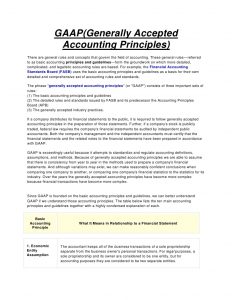
The Division of Corporations is a part of the Delaware Department of State that handles franchise tax administration. Corporations not conducting business in Delaware still have to pay a franchise tax, which is collected annually by the Department of State. The minimum franchise tax is $175 for corporations using the Authorized Shares method and $400 for corporations using the Assumed Par Value Capital Method. By utilizing the Delaware Franchise Tax Calculator, business owners can stay informed and prepared, ensuring they meet the state’s tax obligations and avoid any penalties. This valuable service makes managing Delaware franchise tax requirements more accessible and clear for businesses of all sizes.
- However, they must still file an annual report and pay the filing fee.
- A franchise tax, sometimes called a privilege tax, is a fee you pay for the privilege of doing business in a certain state.
- To calculate franchise tax for LLCs, refer to the state’s flat fee structure.
- The objective of this tax is to provide a straightforward and affordable taxation process to encourage businesses to incorporate in Delaware.
- Let’s also assume the number of shares issued and authorized is the same for simplicity’s sake.
- Keep in mind, this number could be different from the number of shares your company has actually issued.
These payments are determined based on the expected income and expenses of the business for that particular year, along with any other relevant factors such as tax credits or deductions. The annual report will be filed along with the franchise tax payment as per the Authorized Share Method or the Assumed Par Value Capital Method, whichever is lower. There is no annual report to be filed for an LLC, just the $300 franchise tax payment. Failure to pay the franchise tax on time can result in penalties and interest. Corporations may be charged a penalty of $200 and accrue a 1.5% monthly interest for late payments.
How do I pay my franchise taxes and file the annual report?

For credit card payments, major credit cards such as Visa, Mastercard, and American Express are typically accepted. To use an ACH debit payment, a business must provide their checking account information to allow for the tax charge to be directly withdrawn from their account. This ensures compliance with state regulations and avoids unnecessary penalties and interest charges. You’ll incur a $200 penalty if you don’t file an annual report on or before March 1. You’ll debit credit rules also pay 1.5% per month applied against any unpaid tax and penalty.
All LLCs, Limited Partnerships, what is a wealth tax and General Partnerships formed in Delaware are required to pay the annual franchise tax by June 1. All Delaware-incorporated businesses must, however, still pay the annual franchise tax, submit an annual report, and pay a filing fee. Here’s how to figure out how much you need to pay, how to file, and what happens if you don’t. For corporations, the annual franchise tax payment and annual report are both due by March 1st.
Special Considerations for Specific Entities
This easy-to-use service is helpful for businesses looking to estimate their franchise tax payment as accurately as possible. Considering the payable tax deadlines and abiding by the requirements ensures businesses stay in good standing with the Delaware tax authorities. It’s vital for companies to be proactive in handling their franchise tax obligations to maintain a smooth and hassle-free tax filing experience. The Delaware Franchise Tax is an annual fee imposed on corporations that are incorporated in the state of Delaware, regardless of whether they conduct business in the state or not. The objective of this tax is to provide a straightforward and affordable taxation process to encourage businesses to incorporate in Delaware.
Exempt domestic corporations in Delaware are not required to pay franchise tax, but they must still file an annual report. These entities might include non-profit organizations, educational institutions, and certain religious organizations. Since they are exempt from the tax, it is crucial for them to comply with their annual reporting obligations. Delaware franchise tax is an annual fee paid by businesses that are incorporated in the state, irrespective of whether they conduct business in Delaware or not.
For these reasons, more than a million businesses are incorporated in Delaware, including more than half of all publicly traded and Fortune 500 companies. The maximum number of shares that can lawfully be distributed to shareholders is known as authorized shares. It is not implied by the term “Franchise Tax” that your US company is a franchise. Regardless of their organization’s revenue, business plan, or organizational structure, all businesses must pay the Delaware Franchise Tax. Let’s also imagine it has authorized and issued 100,000 shares at a par value of $2.00 each, and 100,000 shares at par value of $10.00 each.
Delaware Franchise Tax: Essential Guide for Business Owners
However, they must still file an annual report and pay the filing fee. In addition to paying the franchise tax, businesses incorporated in Delaware must also file an annual report and pay a small filing fee. You must file your annual report if your business is a corporation and pay your franchise tax and filing fee by March 1.
Limited Liability Companies and Partnerships
In Delaware, accounting and bookkeeping services corporations are subject to the Franchise Tax, which is administered by the Delaware Department of State. It is important to note that corporations incorporated in Delaware but not conducting business in the state are not subject to corporate income tax, as per 30 Del.C, Section 1902 (b) (6). The Franchise Tax is a requirement for maintaining good standing status in Delaware, regardless of whether a corporation conducts business within the state or not. In certain cases, businesses may be required to make quarterly estimated tax payments.